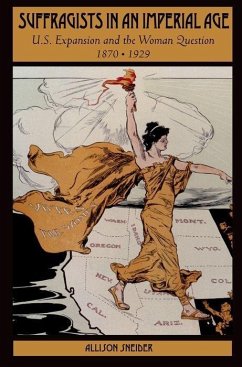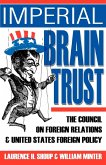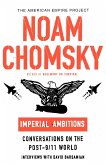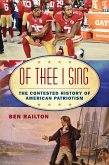In 1899, Carrie Chapman Catt, who succeeded Susan B. Anthony as head of the National American Women Suffrage Association, argued that it was the "duty" of U.S. women to help lift the inhabitants of its new island possessions up from "barbarism" to "civilization," a project that would presumably demonstrate the capacity of U.S. women for full citizenship and political rights. Catt, like many suffragists in her day, was well-versed in the language of empire, and infused the cause of suffrage with imperialist zeal in public debate. Unlike their predecessors, who were working for votes for women within the context of slavery and abolition, the next generation of suffragists argued their case against the backdrop of the U.S. expansionism into Indian and Mormon territory at home as well as overseas in the Philippines, Puerto Rico, and Hawaii. In this book, Allison L. Sneider carefully examines these simultaneous political movements--woman suffrage and American imperialism--as inextricably intertwined phenomena, instructively complicating the histories of both.
Suffragists in an Imperial Age demonstrates how seemingly disparate conversations about the physical boundaries of national territory and the genered boundaries of political space overlapped and inflected each other during post-Civil War efforts to rebuild the nation in new terms. This book argues that US expansion was crucial to the development of the post-bellum US woman suffrage movement and shows how federal discussions of citizenship and voting rightsin the context of creating territorial governments in the continental West and, after the Spanish-American War, in the Caribbean and the Pacific, created space on the Congressional calendar for suffragists to instigate debate on the woman question. In the negotiation of global power relations across thetwentieth century and into the present, political rights for women continues to function as a marker of success for experiments in expanding democracy, as well as a bargaining chip for reasserting some degree of political independence for men. This book shows how by 1929, suffragists were on the verge of making women's voting rights an integral part of US colonial policy, and adding votes for women to the list of markers symbolizing the achievement of "civilization" in US colonies.
Hinweis: Dieser Artikel kann nur an eine deutsche Lieferadresse ausgeliefert werden.
Suffragists in an Imperial Age demonstrates how seemingly disparate conversations about the physical boundaries of national territory and the genered boundaries of political space overlapped and inflected each other during post-Civil War efforts to rebuild the nation in new terms. This book argues that US expansion was crucial to the development of the post-bellum US woman suffrage movement and shows how federal discussions of citizenship and voting rightsin the context of creating territorial governments in the continental West and, after the Spanish-American War, in the Caribbean and the Pacific, created space on the Congressional calendar for suffragists to instigate debate on the woman question. In the negotiation of global power relations across thetwentieth century and into the present, political rights for women continues to function as a marker of success for experiments in expanding democracy, as well as a bargaining chip for reasserting some degree of political independence for men. This book shows how by 1929, suffragists were on the verge of making women's voting rights an integral part of US colonial policy, and adding votes for women to the list of markers symbolizing the achievement of "civilization" in US colonies.
Hinweis: Dieser Artikel kann nur an eine deutsche Lieferadresse ausgeliefert werden.








